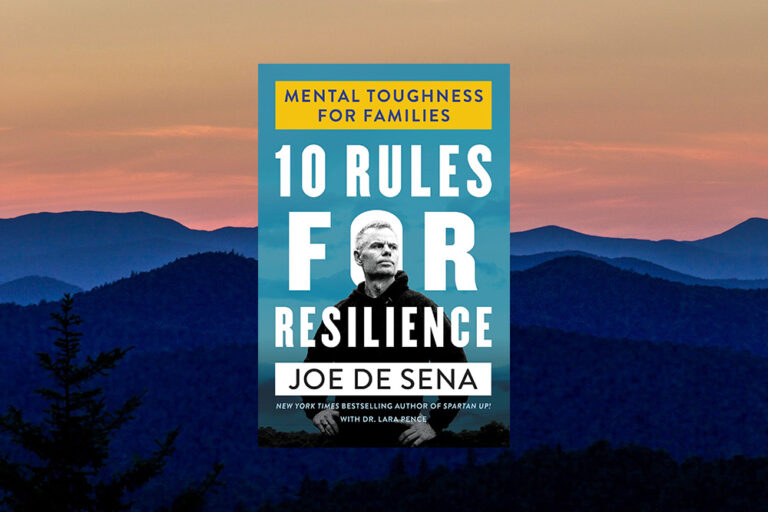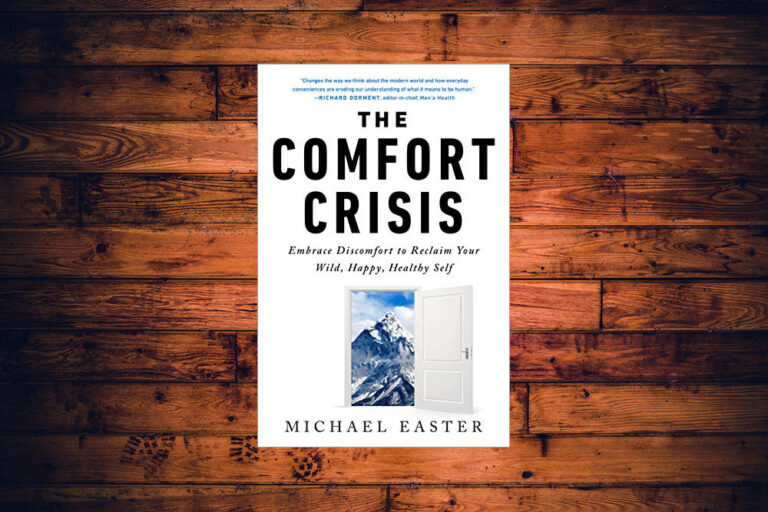#13: The Joys of Discomfort. Practical Stoic Wisdom From “How to Think Like a Roman Emperor” by Donald Robertson (Part 4)

Most people consider discomfort something bad. Few would consider it something useful. Very few would consider it something that can bring joy.
If you’re reading this article, you’re in that crazy minority. And if you aren’t yet convinced that discomfort can bring fulfillment, today’s issue will convince you why.
In the last part of my notes from Donald Robertson’s How to Think Like a Roman Emperor: The Stoic Philosophy of Marcus Aurelius we’ll discuss how discomfort brings joy to our lives. We’ll also cover how to stay serene even when our environment is anything but so.
What You Can Learn From Hercules
Like the Cynics before them, the Stoics saw the myth of Hercules as an allegory about the virtues of courage and self-discipline. “What do you think Hercules would have amounted to,” Epictetus asks his students, “if there had not been monsters such as the Nemean lion, the Hydra, the stag of Artemis, the Erymanthian boar, and all those unjust and bestial men for him to contend with? Why, if he had sat at home, wrapped up asleep in bedsheets, living in luxury and ease, he would have been no Hercules at all!” Epictetus tells his students that just as Hercules cleansed the earth of monsters—without complaining—they should set about conquering themselves by purging the base desires and emotions from their hearts.
For Stoics, in other words, the tale of Hercules symbolizes the epic challenge of deciding who we really want to be in life, the promise of philosophy, and the temptation of giving in to pleasure and vice. The moral is that it often requires a Herculean effort to keep to the right path. But wasn’t Hercules’s life unpleasant? As we’ll see, from the Stoic perspective Hercules remained cheerful, despite the terrible things he endured. He enjoyed a profound sense of inner satisfaction knowing that he was fulfilling his destiny and expressing his true nature. His life had something far more satisfying than pleasure: it had purpose.
In classical mythology, Hercules was a divine hero. Confronted with a choice between Vice and Virtue (portrayed by alluring woman called Kakia and somber woman called Arete), he chose the latter path. He lived a hard but honorable life.
Stoics admired Hercules because he stood for their cardinal values. As Arete said, “Nothing that is really good and admirable is granted by the gods to men without some effort and application.”
Hercules pursued purpose over pleasure and virtue over leisure. Or in other words, he chose voluntary discomfort knowing that it would help him become his best self.
In the quote above, Epictetus points out various hardships Hercules had to endure and how they shaped him into a hero. Despite living a difficult life that many would call unpleasant, in reality Hercules lived joyfully—precisely because of the adversity. Each challenge helped him cultivate his values. Every difficulty forged him into a stronger man. His noble purpose nourished his soul.
Now let’s think about the modern times.
Imagine that you’re standing at the crossroads, unsure which path to take. Two women appear in front of you. One is the hottest woman you’ve ever seen in your life. She’s so attractive and her half-naked body is so tempting that you can barely contain yourself at her sight. The other woman is dressed modestly, has a somber expression and looks like she’s about to reprimand you.
The beautiful woman, Kakia, tells you in a smoky voice that you can have whatever you want right now and that your life will be devoid of hardships. She reveals the contour of her firm, round breast and smiles, as if to say the “whatever you want” part includes her.
The solemn woman, Arete, tells you in an emotionless, matter-of-fact voice that an easy life will make you feel empty. Staring you down, she declares that only a hard, virtuous life will bring you lasting joy and fulfillment.
How many modern men would choose the beautiful Kakia right away, without even listening to Arete?
We meet these two women every day, only they don’t appear in human shapes.
Kakia appears as sugary junk food, Arete appears as vegetables.
Kakia appears as hitting the snooze button, Arete appears as starting the day right away.
Kakia appears as titillating pornography, Arete appears as healthy sexuality.
Kakia appears as funny short videos, Arete appears as thought-provoking books.
Kakia appears as weak ethics, Arete appears as having high moral standards.
Kakia appears as physical comfort, Arete appears as pushing your physical limits.
Kakia appears as instant gratification, Arete appears as delayed gratification.
The choices we make each day either bring us closer to Kakia or Arete.
If we’re leaning toward Kakia, at first it feels that our life is perfect. We get to enjoy whatever we want right away. We eat delicious junk food, we indulge in pornography, and we have fun playing video games. We feel great without any difficulties in our lives.
But eventually these joys lose their substance. We realize that we spend our lives on empty pursuits. We have no meaning and no purpose. Because there are no challenges in our lives, we get flaccid and fearful.
If we’re following Arete’s example, the opposite happens. We get stronger. We’re driven, fueled by our strong purpose. We’re fulfilled because we embrace all aspects of life. Instead of being slaves to pleasure, we lead ourselves to more rewarding destinations. We become real-life heroes in our life stories.
Who would you rather become, a glutton or a hero?
How to Maintain Cheerful Serenity Throughout Life
Marcus was probably a much happier man than his hedonistic brother Lucius was. True, he didn’t experience the highs of all the wild parties Lucius threw, but neither did he suffer the lows, the painful consequences of overindulgence. What he gained instead was the more profound and lasting happiness that the Stoics claimed was the result of living in accord with wisdom and virtue, or at least some glimmer of that ideal state. Indeed, he made it clear that his goal was to achieve the utmost joy in his heart and maintain a “cheerful serenity” throughout the whole of his life. Having glimpsed this inner peace, Marcus was convinced that it was possible to live consistently in that state of mind, even if he was criticized by those around him or was gored by wild beasts. Socrates himself had remained cheerful while in prison awaiting his execution, and even as he raised the hemlock cup to his lips. At least that was the story. However, Marcus also saw this healthy attitude of cheerfulness in the face of adversity with his own eyes, as exhibited by his beloved Stoic tutors. They had taught the young Marcus that inner calm and happiness are the natural consequences of a life lived well, in accord with genuine wisdom and self-discipline. More importantly, though, he had witnessed evidence of this being their actual way of life, embodied in the actions of these great men even in the face of terrible adversity.
Stoicism embraces balance over extremes and self-control over overindulgence. Instead of going from highs to lows, a Stoic is always composed. This lends itself to what Stoics call “cheerful serenity”—a state in which no matter what’s happening in your life, you experience inner peace.
When we practice voluntary discomfort without complaints, we’re training ourselves to develop the ability to feel serene in adverse circumstances. Through welcoming hard things in our lives, we also build self-discipline and cultivate wisdom.
Marcus’s Stoic tutors said that a life that focuses on cultivating virtues brings inner calm and happiness.
That’s why men feel so great after a tough, demanding workout.
That’s why they feel content after a big adventure.
That’s why they feel satisfied after figuring out something difficult.
Because I fast every day for up to 20 hours, hunger doesn’t bother me. I can feel great even if I haven’t eaten anything in 24 hours. The result is that fasting, what most men would consider uncomfortable, brings more joy in my life.
Because I train hard almost every day, I get to enjoy the satisfaction of pushing my limits. Many modern men hate exercise and dislike physical suffering. In my case, even if it’s painful while doing it, it’s immensely rewarding once it’s done.
Because I study men better than me, I get humbled every day. And because I question myself as I see examples of such individuals, it’s hard to offend me. Meanwhile, many modern men can’t take criticism and don’t ever want to be proven wrong.
Marcus Aurelius, despite being an emperor, dealt with hardships his entire life. Due to their sheer quantity, with each year he became more and more immune to adversity.
In the opening chapter of Donald Robertson’s book, Marcus is on his death bed. But he doesn’t despair. Far from it. As the author describes it:
(…) to the physicians and courtiers present he seems strangely calm, almost indifferent. He has been preparing for this moment most of his life. The Stoic philosophy he follows has taught him to practice contemplating his own mortality calmly and rationally. To learn how to die, according to the Stoics, is to unlearn how to be a slave.
Who wouldn’t want to react to his imminent death like Marcus Aurelius?
There’s only one path to get there. Use adversity to immunize yourself to despair and teach you how to stay cheerful no matter what.
Love and Welcome All That Happens
The Stoics wanted to develop a healthy sense of gratitude in life, unspoiled by attachment. So they practiced calmly imagining change and loss, like a river gently flowing past, carrying things away. The wise man loves life and is grateful for the opportunities it gives him, but he accepts that everything changes and nothing lasts forever. Marcus therefore wrote that it is a characteristic of the Stoic Sage “to love and welcome all that happens to him and is spun for him as his fate.”
Embracing change is not a comfortable thing by any means. Particularly if our lives go well, we don’t want anything to change.
If we’re in a great training cycle, we don’t want an injury to end it.
If we’re in an exciting new relationship, we don’t want the honeymoon period to be over.
If we’re crushing it in business, we don’t want a big customer to pull out.
Yet, as the cliché saying goes, change is the only constant.
You can count that things will change. You either:
- accept that fact and adapt when the change comes (the hard choice that makes your life easier), or
- pretend nothing will change and protest when it happens (the easy choice that makes your life harder).
Yet again, leaning into the hard things makes our lives better.
By accepting that things change we become more grateful for what we now have. We know it may be gone at any minute. We don’t pretend that things will always be great. We accept the discomfort of the inevitable unknown.
By welcoming all that happens we realize our full potential, too. When our lives change, we’re thrown into new challenges, new environments, and new relationships. This is how we become stronger and more resilient. And this, circling back to the previous quote, helps us live a more serene life.
Self-Control Brings More Joy
Socrates had likewise claimed, paradoxically, that those who practice self-control actually obtain more pleasure from things like food and drink than those who indulge in them to excess. Hunger is the best relish, he said, whereas if we overeat we spoil our appetites.
Intermittent fasting is the simplest way for a modern man to express more gratitude in his everyday life. After abstaining from food for a longer period of time you’ll find that even the simplest meal can bring a lot of joy.
To this day I remember the out-of-this world taste of the first meal I ate after my first 3-day fast (I went 89 hours without food).
Sadly, few men in the developed world ever get to experience that. They never experience real hunger because they eat every three hours.
I’ve you’ve never skipped a meal or two, here’s a challenge for you: go for at least 24 hours without food. For example, stop eating today at 5 pm and have your first meal tomorrow at 5 pm. I promise: you’ll not only survive but you’ll also access a new dimension of appreciation for food.
But Socrates’s quote doesn’t apply to food only.
Chilling out on a couch feels better after a long, strenuous hike.
Sex feels better when we draw things out instead of resorting to a quickie.
Massage feels better after a tough workout.
A long, warm bath is more pleasant after a week of ice cold showers only.
Watching your favorite TV show is more rewarding after studying a difficult skill.
We can’t (and shouldn’t) always get what we want right away—often we need to earn it first so that we can fully appreciate it.
Build Your Inner Citadel
Marcus tells himself that he doesn’t literally need to get away from it all because true inner peace comes from the nature of our thoughts rather than pleasant natural surroundings. He tells himself that resilience comes from his ability to regain his composure wherever he finds himself. This is the “inner citadel” to which he can retreat, even on the frigid battlefields of the northern campaign.
When he was younger, Marcus Aurelius used to retreat to his peaceful villas in the Italian countryside to get a break from running the empire. Unfortunately, endless wars made his vacations a thing of the past. As Donald Robertson writes:
By the time he wrote The Meditations, during the Marcomannic Wars, pleasant retreats were a thing of the past, and his life was spent far from Rome. Marcus still found himself pining after his beautiful holiday villas, such as Antoninus’s family home at Lorium on the Italian coast, where Marcus spent much of his youth. He says that at times, like many other people, he feels a strong desire to get away from things and retreat to the peace of the countryside, seashore, or mountains. However, he tells himself that feeling the need to escape from life’s stresses in this way is a sign of weakness. It might be what the Stoics called a “preferred indifferent,” but escape is not something we should demand from life or feel we really need as a coping tool—that sort of dependence on being able to escape from stressful situations just creates its own problems.
The hardships of reigning his empire and commanding his army had a strong impact on Marcus’s well-being. As a way to cope, he constructed an “inner citadel” that allowed him to draw strength from the Stoic principles of reason. It’s how he maintained his cheerful serenity, even when he found himself living in a harsh, stressful environment. As Donald Robertson describes it:
The Stoic can live with contentment and joy in his heart this way, even if men are against him and his physical environment is torturous. Wherever we find ourselves, our judgments are still free, and they are the seat of our passions.
In order to achieve this sense of inner peace, Marcus tells himself to frequently retreat not to the hilltops but to his own faculty of reason, thereby rising above external events and purifying his mind of attachment to them. He believes that to do this effectively he must reflect, in particular, on two concise but fundamental Stoic principles:
1. Everything that we see is changing and will soon be gone, and we should bear in mind how many things have already changed over time, like the waters of streams flowing ceaselessly past—an idea that we can call the contemplation of impermanence.
2. External things cannot touch the soul, but our disturbances all arise from within. Marcus means that things don’t upset us, but our value judgments about them do. However, we can regain our composure by separating our values from external events using the strategy we’ve called cognitive distancing.
In other words, peace of mind can be achieved even in the chaos of the battlefield—as Socrates reputedly showed—or in the clamor of the Senate, as long as we keep our mind in good order.
So what do we do once we retreat to that inner citadel?
The first step is to contemplate impermanence: whatever troubles us today will soon be gone. Marcus understood that no matter how difficult the war was, it would eventually end. And in the grand scheme of things, he knew that his hardships were nothing but a droplet in a thunderstorm. Soon, he would turn into ashes. Why would a temporary hardship bother him so much?
When we deal with something unpleasant, we tend to think that it’s different than other things. We think that no, this time it won’t go away. We’ll suffer forever.
But like the waters of streams flow ceaselessly past, so does everything else: both the great things in life as well as hardships. Marcus reminded himself of this fact to regain composure and clear his mind.
Which brings us to the second activity to practice in the inner citadel. It’s reminding ourselves that when we face uncomfortable situations, it’s our judgments of them that make them worse.
To one man, a sickness is the worst thing in the world. To another, it’s an opportunity to step back and reassess his life.
To one athlete, a serious injury means his life is over. To another, it means another life begins.
To one student, his inability to understand a difficult topic means he’s never going to master it. To another, it means an opportunity to strengthen his intellect.
As you deal with adversity in life, remind yourself that you’re always in control of your inner citadel. Retreat to it whenever you need it and clear your mind to regain composure and make better decisions.
Questions to Ponder
1. Who do you choose more often in your everyday life: Kakia or Arete? Have you ever considered that pursuing pleasure alone in life robs you of becoming a real-life hero?
2. Looking back, what negative events in your past made you more resilient today? What kind of voluntary hardships could you undertake to achieve lasting inner peace?
3. Do you accept change or pretend things will always stay the same and protest when they don’t?
4. When you have a desire for something, are you able not to indulge in excess? Can you wait and earn it instead of satisfying it as soon as possible?
5. In the midst of discomfort, hardships, or pain, how can you cultivate inner peace? What is your inner citadel?
If you want more advice on how to become a better man through discomfort, sign up for a free weekly Discomfort Club newsletter. Enter your email address below:






